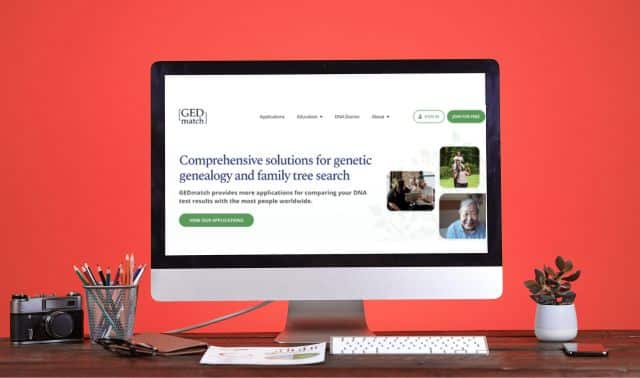Sign up for the Family Tree Newsletter Plus, you’ll receive our 10 Essential Genealogy Research Forms PDF as a special thank you!
Get Your Free Genealogy Forms
"*" indicates required fields
Not to worry: Mr. Manners is here to help you handle all your genealogy pet peeves with aplomb by answering your vexing family history etiquette questions. Didn’t even realize there was such a thing as genealogy etiquette? Darling, didn’t anyone in your family tree climb down from the trees or crawl out of those nasty caves? Really! If you judiciously make use of this counsel when faced with the irritating individuals, Mr. Manners believes you’ll recapture the joy of pursuing your genealogy.
Cousin disconnect
Silent treatment
Dear Mr. Manners: I learned about a distant relative who was working on the same family line I am, and I was excited to get in touch with her because I have several brick walls with this family. I took the time to print out the information I’ve researched for years and wrote her a nice letter explaining who I am and what I’m working on, and how I’d love to compare notes. It’s been several months now and I haven’t heard a thing. What should I do?
—Peeved in Peoria
Dear Peeved: Some genealogists simply aren’t sharers. Despite their interest in people of the past, they aren’t people persons. Nonetheless, you needn’t give up on your reluctant relative just yet. The trick here is to remind your distant cousin of your earlier correspondence without implying that she is, well, rude. Send a brief follow-up with some additional piece of info that you “forgot” to include the first time. Perhaps your kin misplaced your first letter or it got shuffled underneath the latest issue of Family Tree Magazine. Your friendly, blame-free second letter may prompt a response.
Tree heist
Dear Mr. Manners: I’ve spotted my own genealogy research, without attribution, in other people’s online pedigrees. Worse, they’ve tacked on mistakes! Is there anything I can do?
—Miffed in Missoula
Doubtful data
Dear Mr. Manners: My biggest peeve in genealogy is people who post GEDCOMs without verifying any data. If they list any source, it’s either their own genealogy file or someone else’s GEDCOM, or World Family Tree (WFT). Is this rude or stupid or both?
—Hot Under the Collar in Houston
Dear Hot: My, someone got up on the wrong side of the pedigree chart this morning! While of course expressing our frustration at such practices much more politely, we echo your abhorrence. In particular, we’d like to point out that “facts” such as “WFT Est 1825-1845” are not actual information and should not be passed along as if they are. Here is how the folks at Family Tree Maker, which unleashed the World Family Tree upon the genealogy public, explain this:
Talk about tangents
Dear Mr. Manners: Is it appropriate to use message boards to carry on conversations? Shouldn’t these researchers just email each other directly?
—Concerned in Cleveland
Dear Concerned: Endless message-board threads can indeed be frustrating, but it’s equally off-putting to see a conversation go offline just when useful information is about to be imparted. If a message-board conversation truly is of interest only to the two researchers who are communicating, then yes, it’s better to switch to exchanging emails directly. Often, however, facts exchanged between two genealogists on a message board may prove valuable to a third researcher—even years later.
Not clicking
Dear Mr. Manners: I joined the local genealogy club, but can’t seem to break into the clique of longtime members where all the action is. They’ve been running the club, it seems, since their ancestors disembarked from the Mayflower. How do I make headway?
—Shut Out in Schenectady
Dear Shut Out: First, may we politely inquire why you wish to hobnob with such snobs? Perhaps there’s another genealogy group in your area that’s more welcoming. A Google search or clicking at cyndislist.com/societies might uncover an alternative. Failing that, you’re likely not the only member who feels like an outsider looking in. Consider recruiting other outcasts and spinning off a club of your own, where newcomers like yourself are more welcome. With such an open-arms attitude, your rival group will no doubt grow quickly and soon outstrip the snobs’ society.
Philosophical differences
Dear Mr. Manners: I’d like to use data from a hereditary genealogy society—and even considered joining—but I strongly disagree with the social views it espouses. Where should I draw the line?
—Queasy in Quinnipiac
Unfair share
Dear Mr. Manners: Somehow my cousin wound up with most of our mutual grandparents’ possessions, including one-of-a-kind old photos and family heirlooms. Can I insist that she share?
—Resentful in Reno
Dear Resentful: Stomping your feet with your dear cousin is unlikely to produce an outburst of even-handedness. But there’s no reason not to try … well, Mr. Manners hesitates to call it “wheedling.” You might, for example, recall fondly and at great length how Grandma used to hold you in her lap in that rocking chair or Grandpa used to let you win at chess on the board he crafted himself. Pause frequently in your tearful reminiscences to give your cousin the opportunity to do the right thing and volunteer that you should have the treasured object. If you have children—and especially if your cousin does not—feel free to mention how you’d love to be able to pass the heirloom you treasure on to the next generation. (You don’t want it for yourself, oh, no. But wouldn’t Grandma have wanted her great-grandchildren to have it?)
Quick studies
Dear Mr. Manners: I am amazed at how many people who get interested in genealogy, after one weekend will say they’ve traced their family tree back to the 1500s and found it all on the internet. What should one say to these people?
—Appalled in Albany
Tips:
- Remember that courthouse clerks and other public employees have work to do that doesn’t include assisting genealogists. Be unfailingly courteous when visiting repositories, keep questions to the point, and send a thank-you note.
- Consider using social media sites to contact long-lost cousins for information. Some people check their Facebook page far more often than they check their email.
More Online
- Collecting Dead Relatives
- Photo Sharing 101 Webinar
- Evidence Explained: Citing History Sources from Artifacts to Cyberspace
From the February 2012 issue of Family Tree Magazine
More great genealogy resources from Family Tree Magazine:
ADVERTISEMENT




